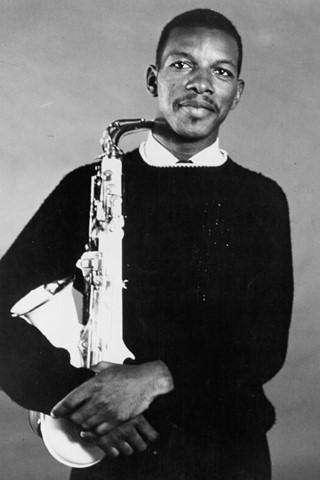
Free Jazz
Very few musicians can fairly be said to have single-handedly created a new jazz style, radically different from the ones in which others were playing at the time. Saxophonist Ornette Coleman is among the handful of musicians who can substantially claim that distinction. Indeed, any discussion of the origins of the style known as "free jazz" must start with the small number of immensely influential recordings Coleman made in 1959 and 1960. These recordings presented a style of playing that differed radically from the bebop and cool jazz styles prevalent at the time, so much so that reactions to them were often highly hostile. Although free jazz did not become the dominant style of jazz performance, its influence was widely disseminated on nearly all jazz styles through the 1960s and beyond.
Coleman's first recordings didn't follow many of jazz's standard conventions, such as the use of harmonic chord changes characteristic of blues or popular "standards." Notably absent from Coleman's music from this period were the instruments traditionally used to provide harmonic accompaniment in jazz, such as piano or guitar. The style of drumming in these recordings is the one element that retains a mainstream aspect of the sound of bebop: a steady pulse of eighth notes played on a ride cymbal, under which snare and bass drum play strategically placed metrical accents and ornaments. Coleman's plaintiff alto saxophone melodies (often joined in unison by trumpet) float freely over the steady pulse of the drums. Between recognizable (and usually very brief) melodic statements that appear to be composed, saxophone and trumpet solos explore ideas generated from these melodies without the anchor typically provided by harmonic chord changes or fixed tonal centers. These and other features are all heard in his 1959 seminal album The Shape of Jazz to Come.
Heebie Jeebies
Say, I've got the Heebies
I mean the Jeebies
Talking about
The dance, the Heebie Jeebies
Do, because they're boys
Because it pleases me to be joy
Boogie Woogie Bugle Boy
He was a famous trumpet man from out Chicago way
He had a boogie style that no one else could play
He was the top man at his craft
But then his number came up and he was gone with the draft
He's in the army now, a blowin' reveille
He's the boogie woogie bugle boy of Company B






